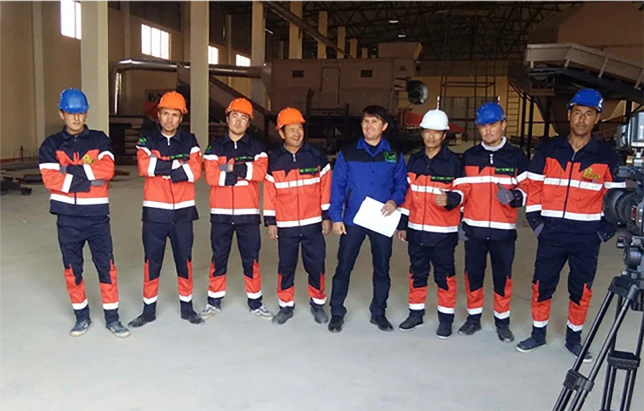

Aug . 07, 2024 19:05 Back to list
The Importance of Industrial Shredders in Waste Management
In an era characterized by increasing environmental awareness and stringent regulations on waste disposal, industrial shredders have emerged as indispensable tools for businesses across various sectors. These robust machines are designed to reduce large volumes of materials into manageable sizes, facilitating not only recycling but also enhancing safety and efficiency in waste management processes.
Industrial shredders can handle a wide array of materials, from bulky cardboard and plastic to metal and electronic waste. By breaking down these materials into smaller pieces, shredders make it easier for recycling facilities to process and repurpose them. This capability aligns perfectly with the global push towards sustainable practices, as it aids in reducing the amount of waste sent to landfills. By converting waste into reusable raw materials, industrial shredders play a pivotal role in the circular economy, where resources are continually reused and recycled.
One significant advantage of industrial shredders is their ability to streamline operations within companies. Industries such as manufacturing, construction, and retail often generate substantial waste that can be cumbersome to manage. Shredding this waste not only minimizes storage space but also accelerates the process of disposal and recycling. For instance, in the manufacturing sector, production scraps can be shredded on site, significantly cutting down on transportation costs and time associated with waste management.
Safety is another critical aspect that highlights the importance of industrial shredders. Handling large and potentially hazardous waste materials poses inherent risks. By employing shredders, companies can minimize the danger associated with manual handling of these items. Shredders reduce bulky objects into smaller pieces, making it safer for workers to manage the waste. In addition to enhancing safety, shredding can also reduce the risk of theft or unauthorized access to sensitive materials, particularly in industries dealing with confidential documents or secure electronic devices.

Moreover, the technological advancements in industrial shredders have enhanced their efficiency and effectiveness. Modern shredders are equipped with advanced features, such as programmable controls and smart sensors, which allow for better adaptation to different materials and volumes. These innovations not only improve the speed and quality of the shredding process but also reduce energy consumption, aligning with eco-friendly operational strategies.
In terms of the different types of industrial shredders, they can be categorized based on their functionality. Single-shaft shredders, for instance, are ideal for processing large volumes of homogeneous materials, while dual-shaft and four-shaft shredders provide more versatility for handling mixed materials. Granulators, another type of shredder, are specifically designed for producing granules from plastics and other materials, further expanding the recycling possibilities.
As we look towards a future where sustainability remains a priority, the role of industrial shredders will undoubtedly grow. Industries are increasingly recognizing the need for efficient waste management solutions that not only comply with regulatory requirements but also contribute positively to the environment. By investing in high-quality industrial shredders, companies can take proactive steps toward responsible waste management while reaping economic benefits.
In conclusion, industrial shredders represent a cornerstone of modern waste management practices. As they facilitate recycling, enhance safety, and promote operational efficiency, their significance in various industries cannot be underestimated. As the global focus shifts towards sustainability, the adoption of industrial shredders will be crucial in meeting both environmental goals and operational objectives. Embracing this technology is not just a smart business decision; it is a commitment to a sustainable future.
Latest news
The Future of Metal Recycling: Revolutionizing Waste Management
NewsMay.14,2025
Optimizing Waste with Recycling Lines
NewsMay.14,2025
Municipal Solid Waste Sorting Line: Revolutionizing Waste Management
NewsMay.14,2025
Metal Shredders: Essential Tools for Efficient Recycling
NewsMay.14,2025
Maximize Your Profits with a Copper Wire Granulator
NewsMay.14,2025
Home Metal Shredder: A Smart Choice for Your Home Recycling Needs
NewsMay.14,2025